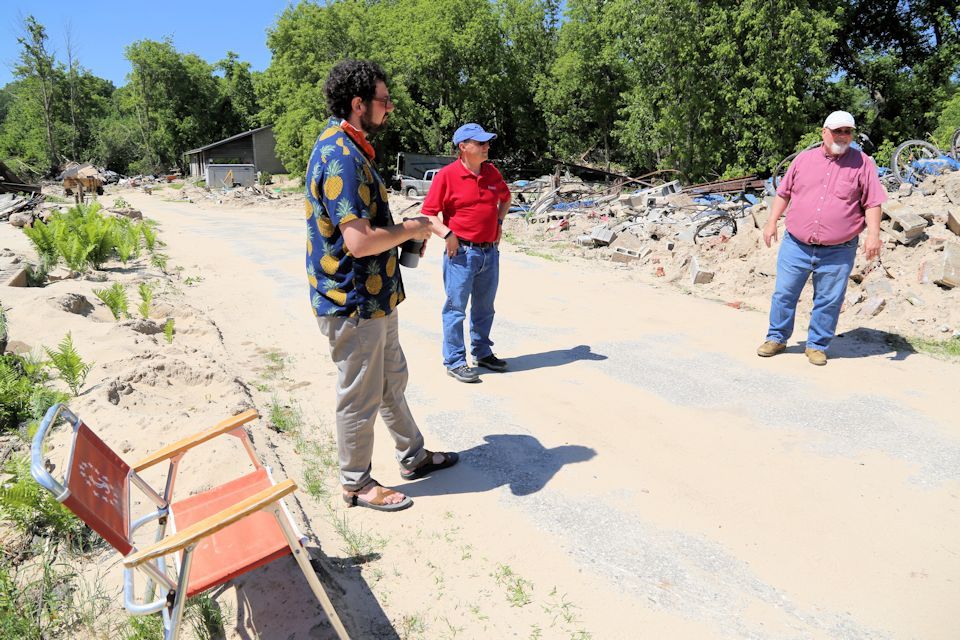Disaster recovery continues in mid-Michigan after flooding shattered the lives of thousands eight months ago. Six case managers, employed by The Michigan Conference, are now helping residents rebuild their lives.
GLENN M. WAGNER
Michigan Conference Communications
Generosity and compassionate help for others are praised throughout the Bible. Proverbs 28:27 offers an example of this consistent wisdom: “He who gives to the poor will not want, but he who hides his eyes will get many a curse.”
John Wesley, the Methodist movement founder, adopted this simple rule for giving that still influences generosity, “Earn all you can, save all you can, and give all you can for the glory of God.”
This look at compassionate giving in two parts is offered as a great thank you and a continuing invitation for faithful generosity.
First, we visit Rosebush United Methodist Church, a congregation that continues to foster giving during a pandemic.
Then, we follow those offerings to a place of real need in Michigan, where front line workers apply that generosity in making a profound difference for survivors in the aftermath of the mid-Michigan flooding of May 2020.
A culture of faithful generosity
Rosebush is a friendly village of 368 persons adjacent to Michigan route 127, just eight miles south of Clare and seven miles north of Mount Pleasant.
The Rosebush United Methodist Church was averaging about 130 in weekly worship attendance before the 2020 coronavirus pandemic hit. In loving concern for all, church leaders decided in the spring to shift ministry to virtual online platforms until it proves safe to return to in-person gatherings. Connections with others are maintained now by phone, Zoom, and email. Persons can stay part of the Rosebush UMC church family via worship services shared on Facebook live and YouTube. Ongoing ministry is also assisted via two websites, one named for the church, and another, “Tough Questions For God,” which features podcasts that have been viewed as far away as Asia! On Sunday mornings, in addition to the online service, Rosebush UMC has been broadcasting worship with the help of its FM radio transmitter to those who still gather in the church parking lot to listen to the service on their car radios.
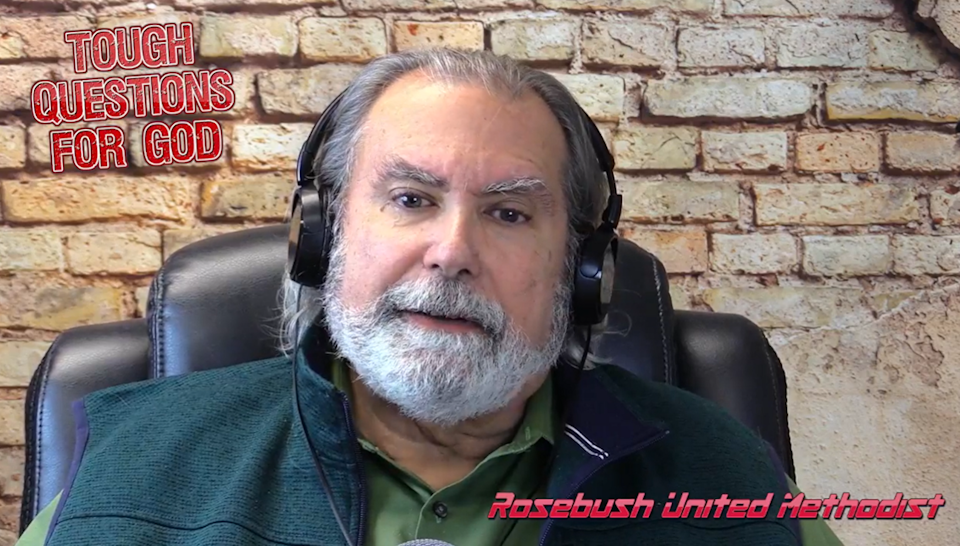
Joseph Beavan, “Pastor Joe” to the Rosebush congregation, is a husband and father of five. Joe initially followed his call to ministry from a successful career in a Grand Rapids area auto business. Joe attended Cornerstone United Methodist Church in Caledonia and played in the church band when he was first inspired to launch a transformational ministry with men in prison. Later, his ministry and pastoral skills were nurtured in the United Methodist School for licensed local pastors and a new appointment to serve as pastor for three churches in Sears and Barryton, MI. Joe has been serving as pastor of Rosebush UMC for the past five years.
Pastor Joe knows the pandemic has resulted in some of his church members needing to reduce their giving to the church. Nevertheless, he is thankful that others have stretched their faith to increase support. The congregation stayed on track with their payment of Ministry Shares. Some have used their improved circumstances and reduced expenses to step up their giving for ministry to recognize the life-changing importance of Jesus’ love. He acknowledges that the Rosebush congregation has had a long history of generosity but honestly believes that as pastor his personal commitment to tithing is also important. “You can’t expect others to be supportive unless you are also faithfully committed.”
Beavan notes that church leaders periodically share testimonials during worship services about how congregational contributions make a difference for others. A recent discussion in the church finance committee resulted in a decision to share a $5,000 surplus with another congregation on the Central Bay District experiencing a financial shortfall. Joe shared, “We are regular recipients of the blessings that come from offering our gifts for God’s ministry.”
Rebuilding lives in the name of Christ
Two dams failed in mid-Michigan in May 2020 during torrential rainfall. The massive flooding that followed affected nearly 10,000 residents of five counties, causing an estimated $1 billion in property damage. It took two months for the Federal Emergency Management Agency (FEMA) and local relief agencies like the United Way and Red Cross to deal with the immediate cleanup and to organize local resources for the long haul. The United Methodist churches of Michigan, with funding from the United Methodist Committee on Relief (UMCOR), arrived offering the bowl and towel of Christ’s love. Work teams of volunteers helped with cleanup and ongoing reconstruction efforts. UMCOR made a significant financial investment and trained personnel who were hired to assist the affected residents.
According to our Michigan Conference Treasurer’s office, Michigan United Methodists gave generously in 2020 to offerings that continue to make a difference in the mid-Michigan flood recovery efforts. As of 12/14/2020:
- $66,505.17 to the One Great Hour of Sharing in support of UMCOR operations
- $77,648.11 to UMCOR’s U.S. Disaster relief
- $236,895.10 to Michigan area disaster relief
All of that represents going the “second mile” with designated gifts. However, Ministry Shares provided administrative support for the disaster recovery by paying the salaries of Michigan Conference staff, helping manage the efforts.
Paul Perez, Michigan Conference Director of Connectional Ministries, urges those who wish to continue to support the ongoing mid-Michigan flood recovery efforts to donate through their local United Methodist Church or the Michigan Conference Treasurer’s office (Conference Center North, 1161 East Clark Road, Suite 212, DeWitt, MI 48820, Phone: 617-347-4030). Gifts may be designated by writing “Michigan Area Disaster Relief Fund” #4407 on the check’s memo line.
Additional giving for relief efforts is needed in Gladwin County, which was hard hit by the flooding but had fewer community resources to help residents recover. Offerings can be made as stated above, with the check memo designated for “Gladwin relief.”
Supported by these offerings and a grant by UMCOR, six full-time case managers were employed by The Michigan Conference, starting work in July of 2020. They have partnered with a part-time construction coordinator and an additional volunteer construction coordinator to help survivors recover from this life-changing disaster.
Katie Vokal is the Michigan Conference Director of the Great Lakes Bay Regional Flood Recovery Project. She is a former teacher who was first hired to help Midland County recover from flooding that caused great damage in 2017. In 2019 she went to work with Midland County officials to help develop local government disaster preparedness plans, never thinking that the “once in every 100 years flood would be followed just three years later by a once in every 500 years flood.” Katie remembers the sequence of events that led to the disastrous floods in May of 2020. “Excessive rains caused the Edenville dam in Gladwin to fail, which flushed Wixom Lake and that flooding caused the berm around the downriver Sanford dam to fail, which flushed Sanford Lake and the surging flows of water in already swollen rivers caused massive damage.”
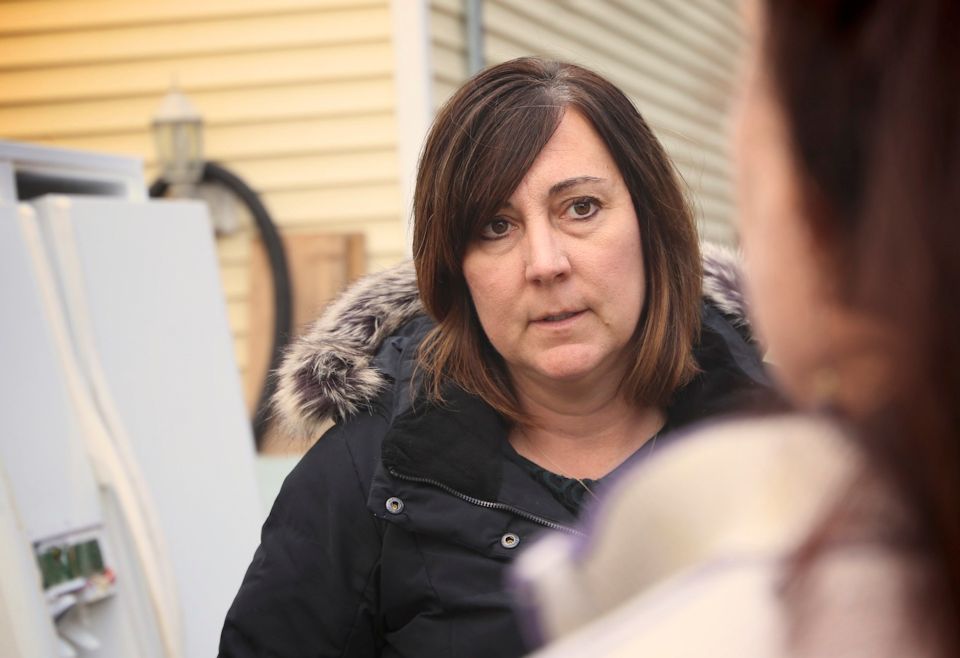
Katie attends a non-denominational church. However, she praises what she has learned about the United Methodist Church’s connectional generosity and the amazing work of UMCOR. “We all thought that after 2017’s disastrous flooding, where UMCOR was so helpful with volunteers and with mobilizing and coordinating with local and national resources, that UMCOR would say, ‘Mid-Michigan has already gotten our help, and we need to move on.’ But instead, UMCOR was back here immediately saying, ‘How can we help? We’ll be here with you as long as we are needed.’”
In addition to supervising five other case managers, Katie is also doing casework in Midland County in the Sanford area. She works closely with the construction managers. Jess Fitzgibbon has been hired for 20 to 30 hours a week to help coordinate the many Midland County reconstruction projects alongside another retired contractor, Dan Kozakiewicz, who volunteers his expertise to this important coordination work.
Katie offers praise to volunteer coordinator Bre Skylar, employed by the Midland United Way, and helps her fellow case managers coordinate volunteer workers for their many rebuilding efforts. Katie knows volunteers are still needed for at least another year and asks that these individuals and teams offer their help through Bre, who can be reached by phone at 989 831-3670 ext. 255 or by email at bre@unitedwaymidland.org.
Volunteers with construction skills such as laying flooring, hanging and finishing drywall, painting, plumbing, carpentry, and electrical are still needed to help the most vulnerable reconstruct their homes. Recovery efforts are expected to continue for another year or more.
Katie is profoundly grateful for the great leadership and support for her efforts from Paul Perez, Michigan Conference Director of Connectional Ministries, and Dan O’Malley, Michigan Conference Disaster Response Coordinator.
Other case managers report
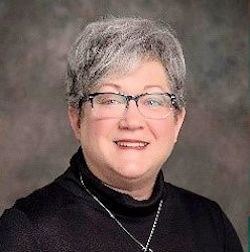
Case manager Carla Long is a life-line to residents in Beaverton, MI, whose lives were upended when the dam failures also resulted in catastrophic flooding in that community. Most persons affected by the floods in Beaverton lacked any form of flood insurance.
Many residents were displaced by the flooding, which caused severe damage to their homes, necessitating major reconstruction and replacement of septic systems while they live in rental housing. Spiking costs for materials, a shortage of skilled labor, and disruptions related to a raging pandemic are all working to extend the timeline toward recovery. Flooding has also affected many homes whose water wells have to be re-drilled to a greater depth.
Carla pursued this work with a powerful sense of God’s calling after a 27-year career at Dow Chemical in nearby Midland.
Many of those who seek Carla’s help appreciate her ability to walk them through the details, assist them with dealing with government and relief agencies, coordinating contractor, and volunteer assistance. Carla has helped connect the hungry with food and the homebound with transportation. Carla knows the importance of networking and partnership needed to bring together people and resources from a broad spectrum of agencies to meet the continuing need. Even though the crisis has faded from the headlines, she still sees a need for continuing volunteer and financial support to help the displaced be restored to their homes.
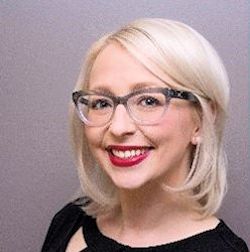
Before working with the Michigan Conference, Felicia Rose-Barry was on Congressman Dan Kildee’s staff from Flint, MI, where she learned about helping communities facing disasters in the Flint Water Crisis.
She, too, is committed to UMCOR’s concern for the whole person and has come to appreciate how the United Methodist Committee on Relief has earned great respect and cultivated teamwork with other area helping agencies. She is grateful for the training she received from UMCOR before beginning her assignment in July from Michigan Conference staff Dan O’Malley and Nancy Money.
Felicia regularly networks with other local agencies to help her clients navigate government and local sources of help. She is excited about a new Zoom-based support group being organized for flood victims in her area.
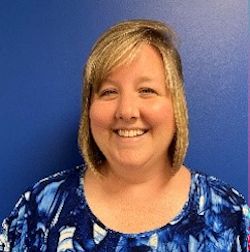
Mid-Michigan case manager Anne Wortley has spent much of her adult life working to connect people to make their lives better. This mother of three has worked in the non-profit world in Midland and Saginaw Counties as a caseworker for Home to Stay and as an organizer for Big Brothers and Big Sisters, helping to match mentoring teens with younger children needing help. She said “Yes” to Paul Perez when the Michigan Conference was looking for experienced case manag\
ers to help people adversely impacted three years ago following the 2017 flooding in Midland County.
When she finished assisting in that flood recovery work, Anne remembers being asked if she would ever want to do this work again if the situation should arise. She never imagined that in 2020 there would be a second great flood in her community.
Anne reported about Midland and Saginaw counties’ residents who have been directly affected by the 2020 flooding. “Some had floodwaters rush through their homes and then immediately drain away while others had flood waters come and settle, five to seven feet deep in their basements or their main living space.”
Anne does home visits to help assess the damage and then networks with the homeowner and construction supervisor to provide a quote for the damages. She works with various funding sources and with volunteers from area churches to help secure assistance and then stays in touch while the work is accomplished.
She is grateful to retired United Methodist pastor Rev. John Landis and the people of Swartz Creek, who wanted to help and provided Meijer gift cards for distribution to needy families.
Some of the affected families have been living in campers since the flooding and are now being moved into local hotels for the winter at reduced rates.
Anne sees how a new initiative to establish care-partners for survivors of the flood provides helpful connections with friends who will also walk with survivors through this difficult period of loss and recovery.
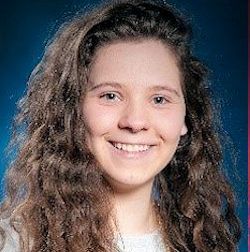
Michigan Conference case manager Raegan Schultz was a major in psychology and public administration enjoying her campus community at Saginaw Valley State University north of Saginaw, MI, when the coronavirus pandemic abruptly ended her senior year in March 2020 and confined her to home where she was left wondering about her purpose and her future.
The floods in Mid-Michigan have focused Raegan’s passion and purpose. She notes, “The United Methodist churches of Michigan and the United Methodist Committee on Relief stepped into an area of great need substantially by offering Christ’s love in person and with a commitment to assist the affected residents for the long haul.”
Raegan is in awe of the great respect that has been earned by UMCOR and the United Methodist Church in the area of disaster recovery and has been impressed by the skills and resources that UMCOR has provided her to carry out her work. She speaks of her work of listening, coordinating, and walking alongside flood victims and helping them navigate the process of trying to rebuild their homes and their lives. Most of her clients are senior citizens, some disabled, and many economically disadvantaged. Many are not proficient with technology or the online process of applying for assistance through government agencies.
Raegan noted the challenges people face who have lost everything and are trying to figure out how to start over after this major loss. Some of her clients face additional hurdles with government regulations requiring homeowners in a flood plain whose homes have been more than 50% damaged and wish to rebuild to physically raise their homes above the flood plain. One of her clients is having to raise his home 5.3 feet. She reports that bottlenecks in the availability of contractors, supplies, and pandemic restrictions have slowed recovery efforts for many.
Raegan is grateful for the way many agencies in Midland are collaborating to help those affected. FEMA offers 18 months of rental assistance. Local apartments and hotels are reducing their rates for the sake of the displaced. The United Way and Community Foundation are donating millions of dollars to relief efforts.
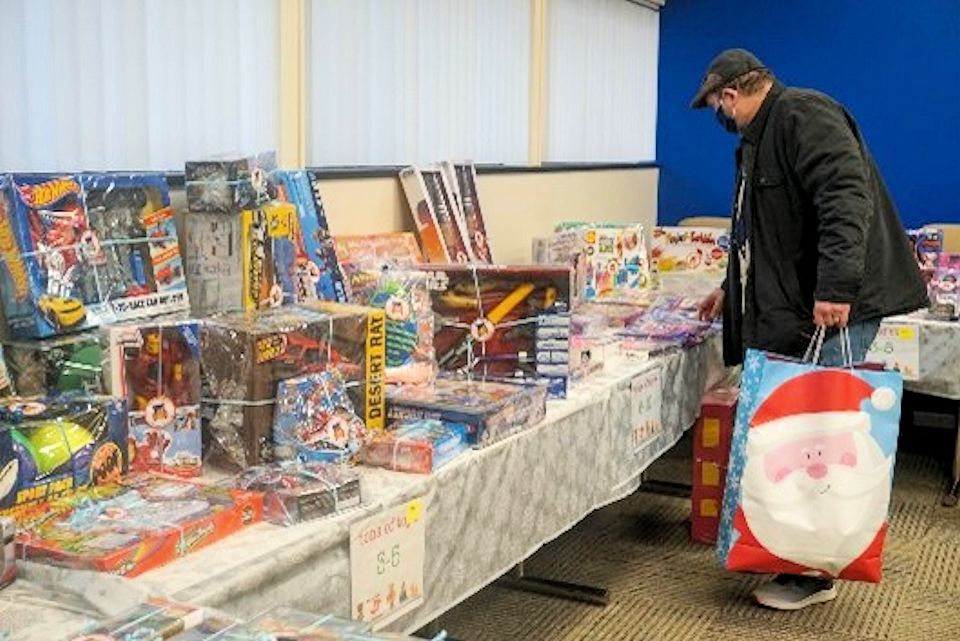
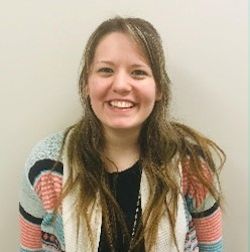
Becca Marcott is motivated by her love for God to help others. Her original goals were to work toward a degree in criminal justice at Delta College and Ferris State University. That shifted during a life-changing alternate spring break trip organized to assist with clean up after Hurricane Sandy devastated New Jersey on October 29, 2012. That trip helped awaken a passion in Becca to walk and work with others in times of need.
After graduation from Ferris, she pursued that sense of God’s calling for a year by working with AmeriCorps VISTA to help alleviate poverty conditions in the northwestern lower peninsula of Michigan. The next year she worked with the National Civilian Community Corps along the Eastern coast from Baltimore to New York and then an emergency transfer to Texas in 2017 to assist with clean-up efforts in Houston following Hurricane Harvey.
Following the floods in mid-Michigan in May of 2020, Becca was recruited by the Michigan Conference to work alongside flood survivors to help with their recovery needs.
As an example of the kind of family being helped, Becca mentioned the challenges faced by a single parent with three young children. The children have been forced by both the pandemic and the flood to try to do their schooling virtually every day in a rented motel room where they have all lived since May. Becca’s supervisor, Katie Vokal, added that Jim, the Manager of the Days Inn Motel in Midland, has been an inspiration to all because of the way he has gone the second mile to help this single parent and her children.
For anyone helping the homeless anywhere in Michigan, Becca noted, “The State of Michigan Housing Assessment Resource Agency (HARA) is a valued source of assistance.” Here is the link to the HARA office in every Michigan County: https://www.michigan.gov/documents/mshda/MSHDA_HARAs_Contact_List_678040_7.pdf
2020 will be a year that many will remember for stressful disruption. But thanks to the gracious generosity of United Methodist congregations across Michigan and those who faithfully serve in Christ’s name, the light of God’s love still shines bright with love and hope in a place of real need.
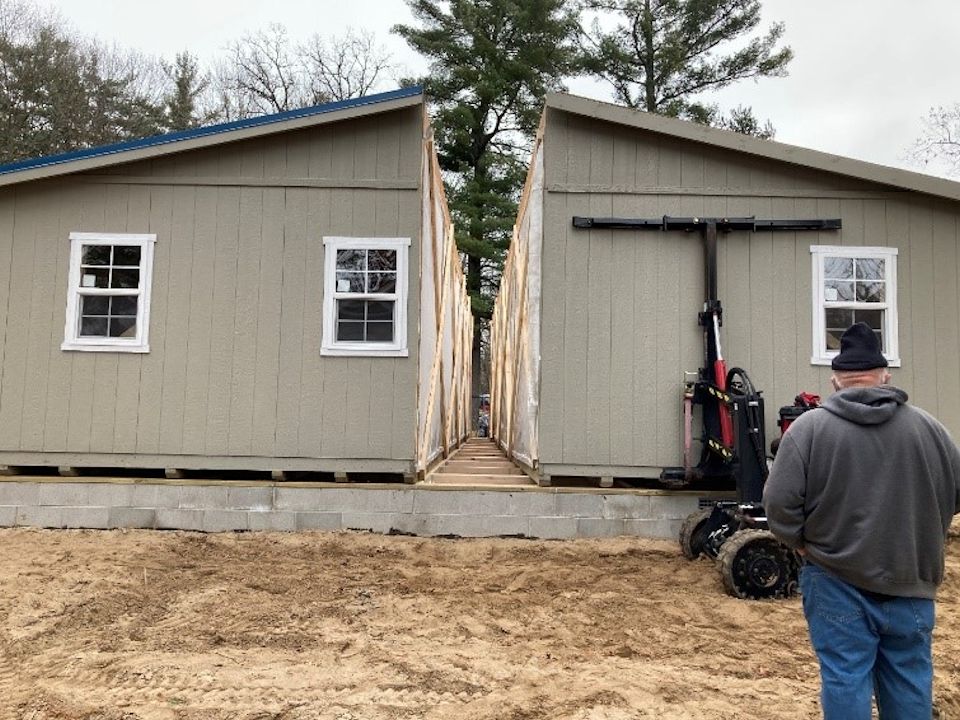
Last Updated on October 31, 2023

